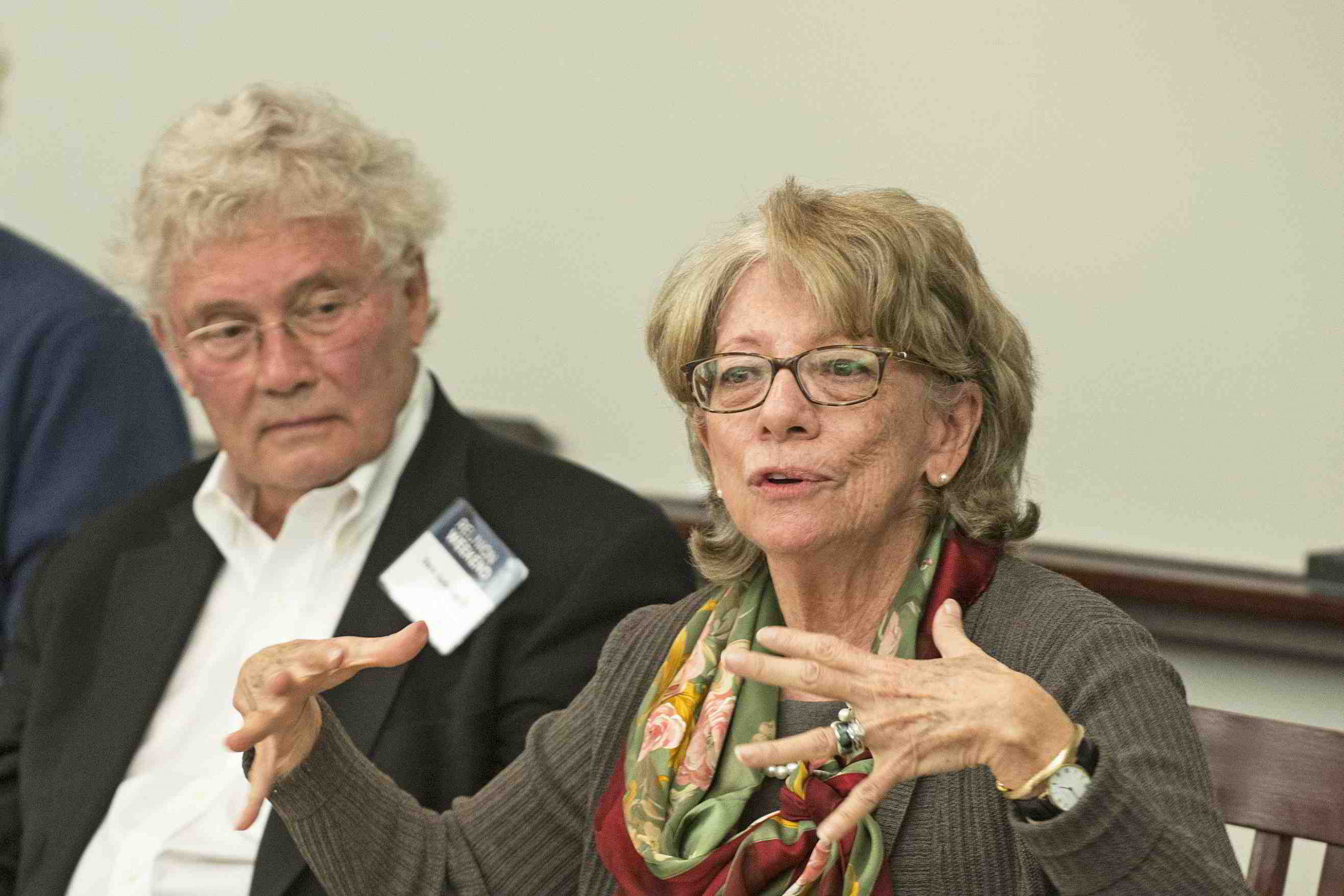David Minge, a former member of the U.S. House of Representatives from Minnesota, asked his classmate about leaving her life as a fugitive:
Q David Minge: Many of us in the class were probably not personally familiar with you as a student, but certainly were in the years after we graduated. Like all of us were aware that you would become a fugitive, but we didn’t know really where you were, and at some of the reunions a question might come up, “Well, where’s Bernardine?” And now here you are. And you emerged from that status, and went through what at least from a distance looks like a fairly stressful transition to where you were at Northwestern. And I’m just wondering if you could share with us how you made that decision, and how that experience played out for you?
A Bernardine Dohrn: You know, I made the decision that waking up the American people about particularly the war in Vietnam was happening partly because of GIs coming back to the US. But I felt that the other piece about white supremacy wasn’t getting the same amount of attention.
Of course. the assassination of Fred Hampton was right here in Chicago. We all knew, he had spoken at Northwestern and was part of that, but it was happening in every city. So, we felt that that it was essential to kind of hurl ourselves into solidarity. I’m trying to think of the language that we used and what I felt at the time. And in a way, I’m not exactly sorry for that. I think that we were lucky. We tried to be very careful. We didn’t kill anyone, but what we did was dangerous. I don’t know what other word to use for it. We worked very hard to make it about property damage, and kind of a scream and wake up to what was happening, but not to hurt anyone.
And you know, I realized as an old lady how risky that was. And I don’t claim that it was even the perfect thing to do, just saying what we thought we were doing.









